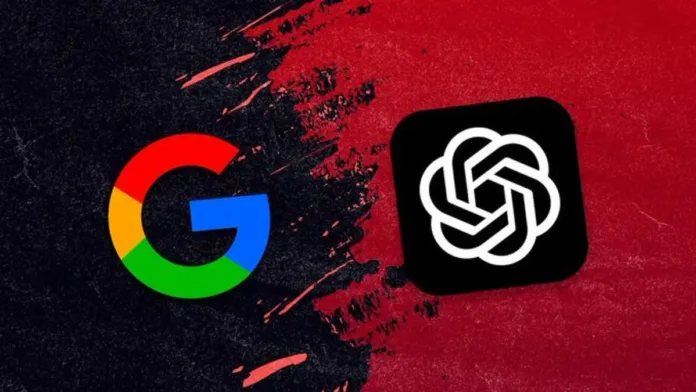Table of Contents
Google Cloud Powers OpenAI, Google Search’s Biggest Rival
At Squaredtech, we’ve seen a growing trend: AI companies are choosing their cloud infrastructure partners based on GPU supply and reliability, not company alliances. The most surprising example? Google Cloud is now supporting OpenAI—the creator of ChatGPT and the most direct threat to Google Search.
Google CEO Sundar Pichai confirmed this during Alphabet’s second-quarter earnings call. “We are very excited to be partnering with [OpenAI] on Google Cloud,” said Pichai. He framed the move as part of Google’s long history of working with startups, AI labs, and developers.
Read More About Our Article of OpenAI’s ChatGPT Agent Can Run Your Entire Computer—Here’s What That Means Published on July 18th, 2025 SquaredTech
The keyword in Pichai’s statement is partnering. While OpenAI competes directly with Google in AI products, it’s now also a paying customer—buying compute power, infrastructure, and possibly access to Google’s powerful TPU chips and stockpiles of Nvidia GPUs.
This shift signals a strategic gamble. Google Cloud may benefit financially in the short term, but it’s fueling a competitor that could reshape the entire search engine business.
OpenAI Quietly Adds Google Cloud to Its Supplier List
In early July, OpenAI added Google Cloud to its public list of infrastructure vendors. That list already included Microsoft (its largest partner and investor) and Oracle. Reports from Reuters in June hinted that OpenAI was considering using Google Cloud, but now it’s official.
What pushed OpenAI to look beyond Microsoft? One major reason is the GPU shortage. Microsoft, despite its massive investment, cannot supply enough Nvidia chips to meet OpenAI’s explosive needs. ChatGPT now serves hundreds of millions of users. It requires constant access to cutting-edge compute hardware.
Google Cloud appears to have what OpenAI needs. Thanks to its investments in both Nvidia GPUs and its own TPU chips, Google can offer exactly what large AI labs demand: raw power and availability.
Pichai acknowledged this on the earnings call. He said Google Cloud continues to win deals with major AI companies because it can actually deliver high-performance hardware at scale.
Other clients already using Google Cloud include Anthropic, Safe Superintelligence (founded by Ilya Sutskever), and Fei-Fei Li’s World Labs. Now, with OpenAI on board, Google Cloud has become one of the most trusted infrastructure backbones for next-gen AI.
AI Push Drives Google Cloud’s $13.6 Billion Quarter
Google Cloud isn’t just scoring deals—it’s growing fast. According to Alphabet’s Q2 2025 earnings, Google Cloud revenue jumped to $13.6 billion, up from $10.3 billion last year.
This 30% year-over-year growth is driven largely by increased demand from AI startups and labs. As more companies train large language models and deploy AI tools to millions of users, they need reliable, high-performance compute environments. Google Cloud fits that need.
Even though cloud remains small compared to Google Search, the business is quickly becoming central to Alphabet’s AI strategy.
At Squaredtech, we’ve tracked Google’s cloud strategy closely, and it’s clear that this growth is directly linked to AI demand—not traditional enterprise services. Google is positioning its infrastructure division as the go-to provider for AI development, regardless of whether those customers compete with Google’s own Gemini chatbot or AI Overviews in Search.
Gemini’s Growth vs. ChatGPT’s Threat
While Google Cloud supports OpenAI on the infrastructure side, the product battle is still intense. Google said its Gemini AI chatbot now has 450 million monthly users, and AI Overviews reach over 2 billion monthly users—figures meant to show momentum against ChatGPT.
Still, these numbers don’t clarify how much of Google’s core search traffic is being diverted to AI experiences—or how much revenue is coming from these tools.
At the same time, OpenAI’s ChatGPT remains the most recognized name in the AI space. It continues to shape public perception and push forward product expectations, making it harder for Google to stay in front.
That’s why this cloud deal feels so risky. Google is now directly helping the company that threatens its most profitable business. The move echoes Google’s early deal with Yahoo, which temporarily gave Google visibility but ultimately helped it dominate search.
Is Google enabling the same pattern again, just in the AI era?
Squaredtech Verdict: A Bold but Risky Move
From a business perspective, Google Cloud’s partnership with OpenAI makes sense. It brings in a major client, boosts cloud revenue, and showcases the platform’s technical capabilities.
But from a product perspective, Squaredtech sees it as a high-stakes gamble. Google is betting that it can grow its infrastructure business while still winning in AI products. Supporting OpenAI gives the startup more power to challenge Google Search, which remains Alphabet’s cash engine.
This partnership could pay off handsomely in the short term. But long term, it may enable OpenAI to speed past Google’s own products—using Google’s own hardware and chips to do it.
Sundar Pichai may be “very excited” for now. Whether he’ll feel the same way next year remains uncertain.
Stay Updated: Artificial Intelligence


